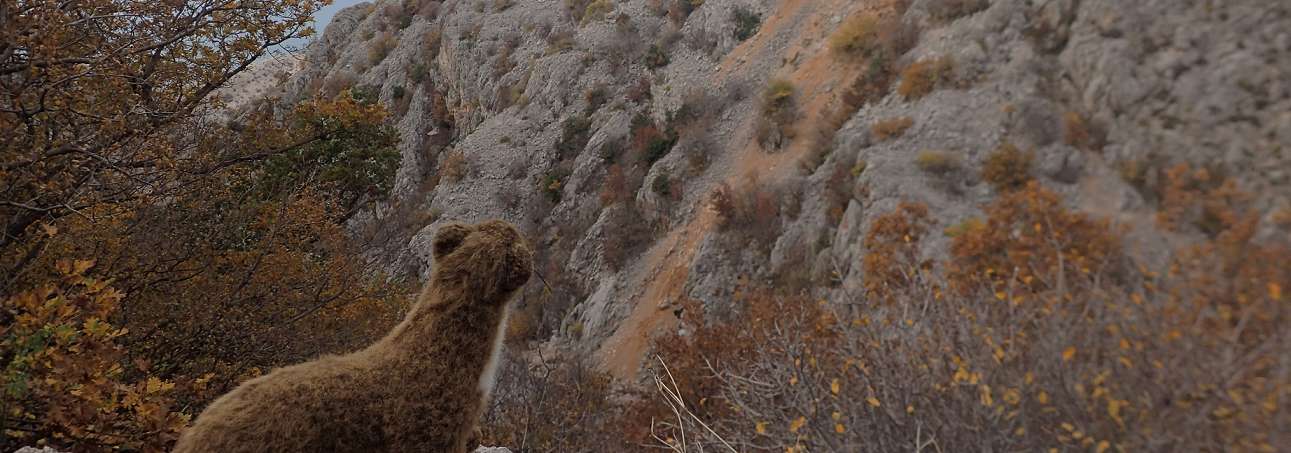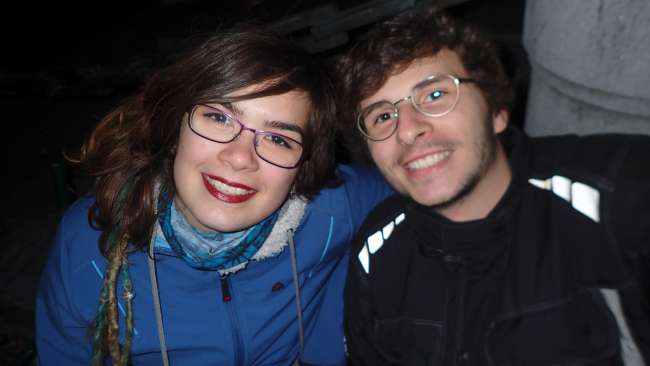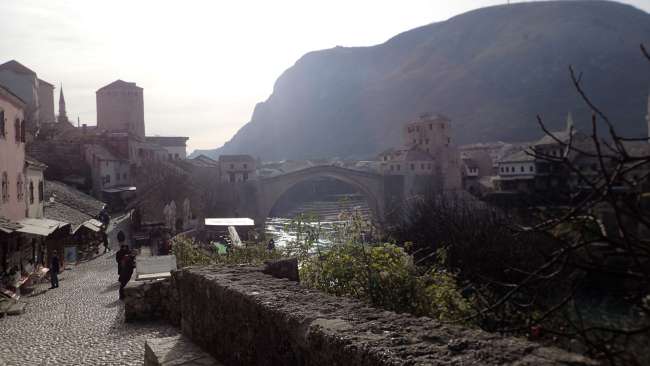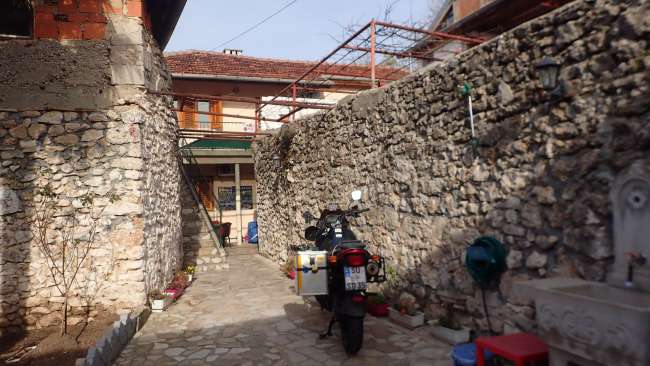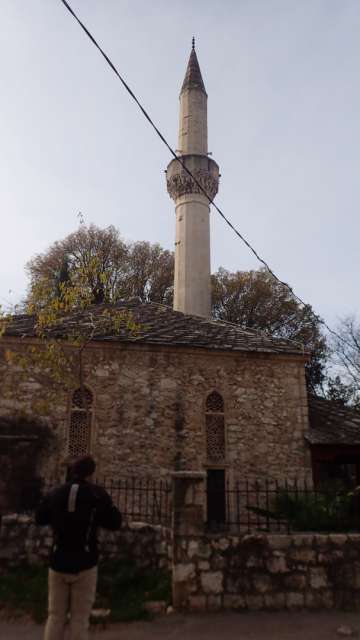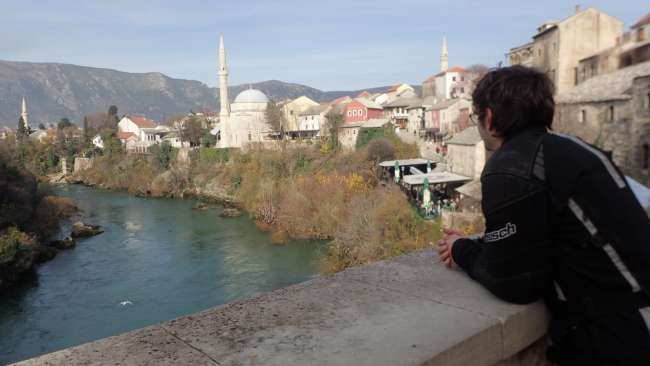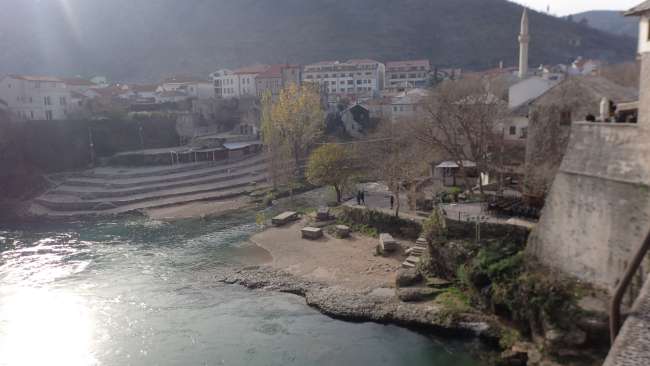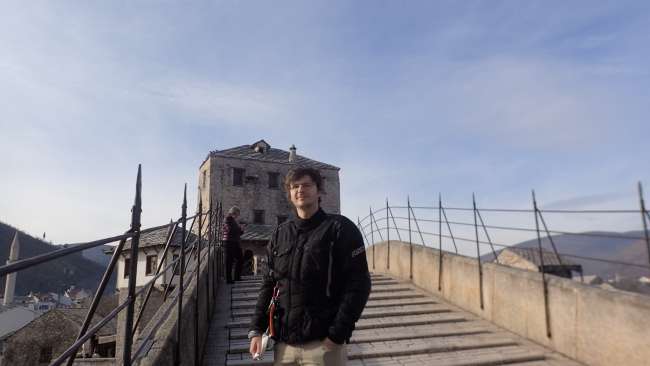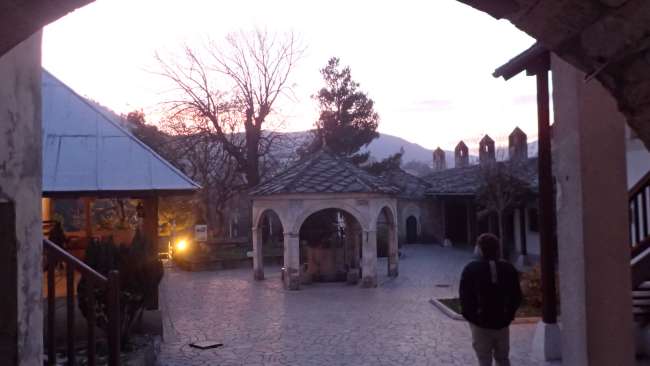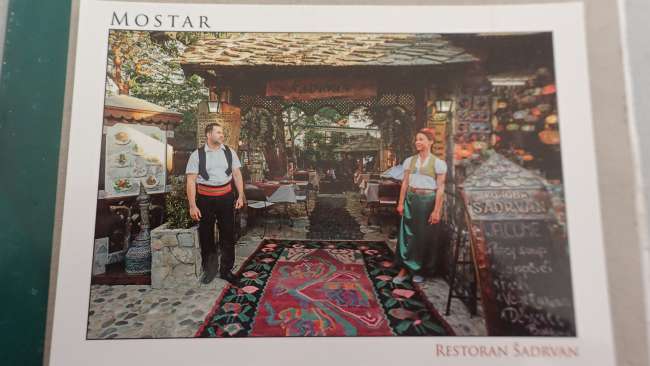Mostar and the war
Birt: 04.12.2016
Gerast áskrifandi að fréttabréfi
General knowledge 8 min (if desired):
https://www.youtube.com/watch?v=JaqdklkOaiw&t=216s
In Mostar, we stayed at Lovely Home (Hostel) owned by Arman. There, we met many interesting people, such as Marlies from Switzerland and Flo from Aachen. They are traveling by bicycle and aim to reach Mongolia.
Onur (DJ) from Turkey has escaped the obligation to join the military and plans to keep traveling until a law is passed that exempts individuals from this duty by paying a certain amount.
In a shop at the beginning of the bazaar, we met Anel. He is from Herzegovina and came to Germany as a child (at the age of 5) shortly before Mostar was surrounded by the Serbs. We had a coffee with him and had good conversations. He said it was difficult for him to come back to Mostar at the age of 13. The children of his age who grew up during the war accused him of fleeing, and he felt like he didn't have a real home. However, he now feels very comfortable in his country, has a wife and daughter, and takes care of his parents. He feels gratitude towards Germany, he said. Generally, there seem to be many people here who speak German and have a very positive attitude towards Germany because they were refugees. It's somehow unusual to imagine that this young man - blue eyes, blonde hair, shaved - is a Muslim.
For us, it's intense to be so close to the war, to hear stories first-hand, and to still see its traces on the streets (occasionally, there are ruins by the roadside that have not been rebuilt or demolished yet). It's already strange to imagine that something as absurd as war is actually practiced.. but certainly, it's even more so when you are a 5-year-old child and you ask your parents why you suddenly move to another country and why home is no longer safe.
We notice that several shops in the bazaar sell small planes, tanks, and pens made from cartridge casings. Anel tells us that these are made by a family from Mostar who earn their money this way. That's why he sells them too. But he doesn't feel comfortable when he looks at them. Those who have watched the above documentary understand why.
The old town of Mostar consists of an oriental bazaar. The 'Old Bridge' - in summer, it is a tradition to jump from it into the river - leads to a restaurant with traditional Bosnian-Herzegovinian dishes where we ate. During prayer times, the meditative singing voice of a Muslim echoes through the streets, creating a very beautiful atmosphere.
Outside the old town, there are many buildings in the Viennese style, which date back to the time of Austrian occupation and create an interesting contrast to the rest of the city.
Gerast áskrifandi að fréttabréfi
Svaraðu (2)
mayra
Hallo ihr lieben,
schön wieder von euch zu lesen :).
Ich hoffe es geht euch auch weiterhin gut.
Ich hab dich lieb kiralein <3mayra
hallo ihr lieben,
schön das es euch gut geht, ich hoffe das es so bleibt :).
Ich habe dich lieb kiralein <3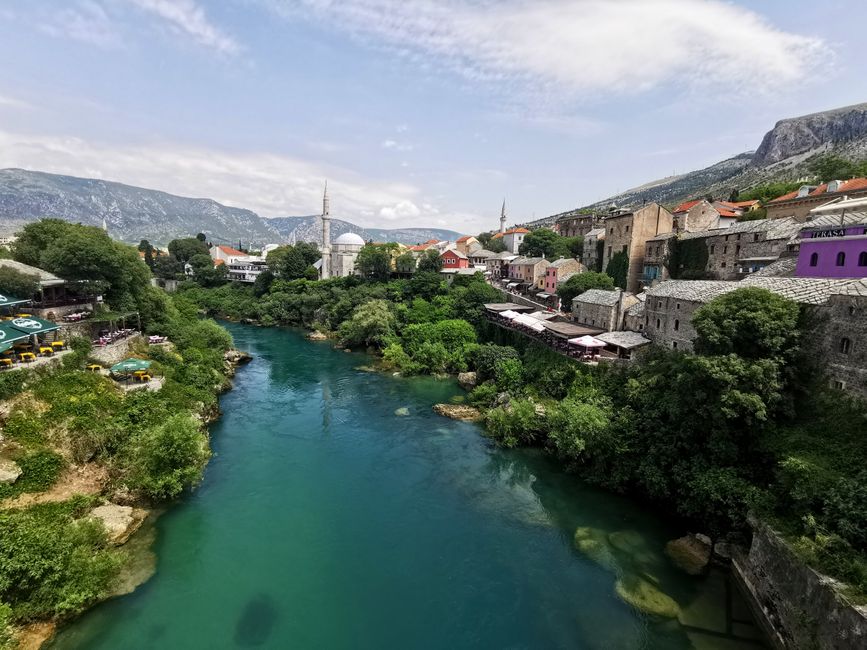
Ferðaskýrslur Bosnía og Hersegóvína
